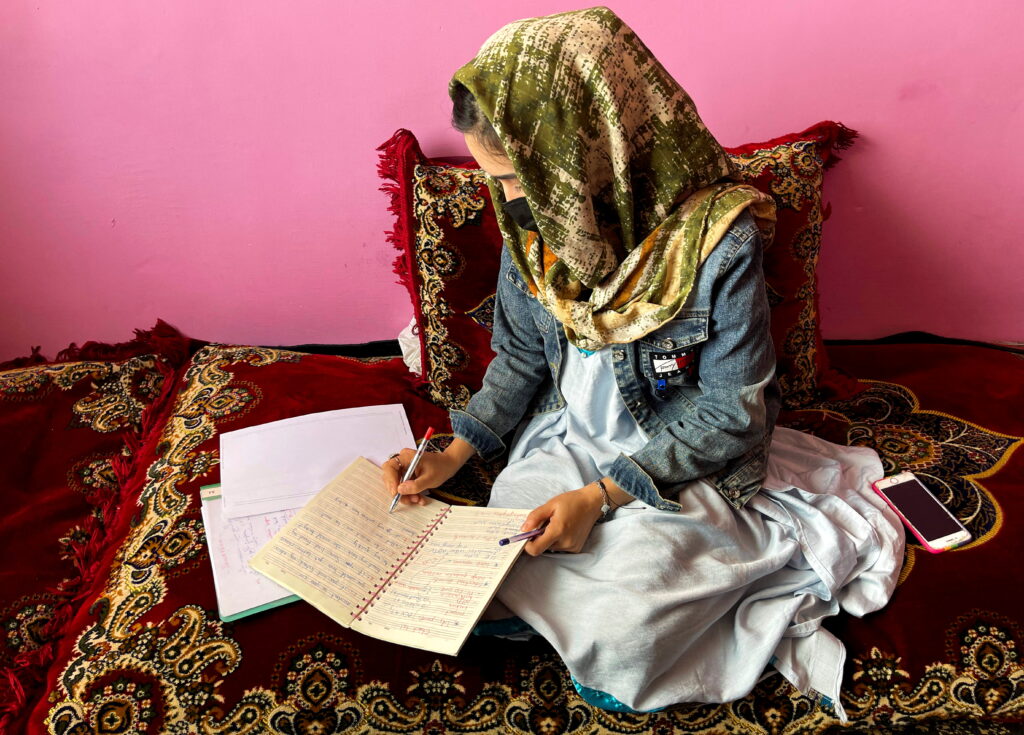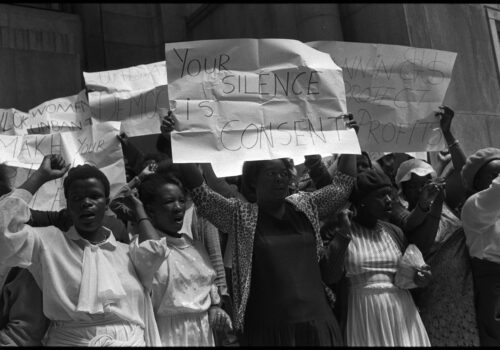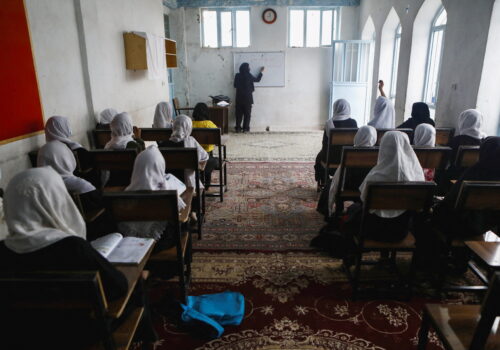In today’s Afghanistan, education is no longer just a human right denied; it has become an act of resistance. Since the return of the Taliban in 2021 and their imposition of a gender apartheid system, more than one million girls in Afghanistan have been pushed out of school. Yet, across villages and cities, they continue to learn, build, and lead—often in silence, and often starting from next to nothing.
What does it take to support a girl in such extreme conditions? The answer, it turns out, is solidarity. It’s trust. It’s mentorship. And sometimes, it’s fifty dollars and a community.
During the first Taliban regime in the late 1990s, I worked with women in Afghanistan to establish what we called the community fora. These were quiet gatherings—sometimes around a stove, other times in the back rooms of homes—where women shared knowledge, developed skills, generated resources, and sustained each other. Today, that legacy continues.
It is out of those spaces that the foundations of the model now used by my charity, the Rahela Trust, are built: deeply communal, quietly strategic, and anchored in dignity.
In provinces across Afghanistan, young women are receiving small, one-time stipends of fifty US dollars each and building micro-initiatives, a process facilitated by a young female scholar who identifies five young women with different skills or interests. The program’s model works within the restraints of Taliban restrictions, with mentors and instructors holding underground courses in private homes or rotating locations.
From these efforts, women are raising chickens, crafting art, tailoring clothing, and creating jobs for one another. But the money is only part of the story. What transforms these efforts is mentorship: older students, diaspora professionals, and other mentor figures offering not just guidance but partnership. It’s about solidarity and unlocking their talents within their community groups—building moral strength, confidence, and practical skills in managing local resources. Their skills grow organically through this hands-on, learning-by-doing approach. And Rahela Trust is not alone; similar initiatives, such as ACDEO, which is improving both education and economic access across Afghanistan, and Empowerment for Her, a women-led charity in Denmark, are contributing to the same vision of women’s empowerment.
Zahra, a twenty-three-year old student in Baghlan, used her funds from Rahela Trust to start a poultry initiative with five friends. (The names of Zahra and other participants from the Rahela Trust who spoke for this article were changed to protect their identities.) “Each member of the team has a specific role,” she said. “We’ve learned to delegate, manage resources, and plan for the future.” While their chickens have yet to produce a profit, significant growth in other areas has already begun. “We’re learning teamwork, responsibility, and how to build something with our own hands, even from a small amount of money,” Zahra explained. The vision is that, despite living under a gender apartheid regime, the success of their small businesses can help transform their villages, cities, and ultimately, the future economy of their nation.
In another region, a group of girls founded a pyrography business after seeing this style of wood-burning art at an exhibition in Kabul. With simple tools and a cooperative model, they produced their first five orders within a month. “For me, this is more than just a business,” Fatima, a participant said. “It is a bridge between art and empowerment.”
Perhaps most inspiring is Homa’s story. A student of Islamic studies, Homa used her stipend to launch a small textile venture that now employs five women—each with a role in production, marketing, or logistics. Their modest operation has already begun generating profits that allow the women to support themselves. “All members are pleased with their work and are happy that they can now meet their daily needs,” she shared.
This model of mentorship and micro-enterprise was not adopted from elsewhere—it was developed by the women of Afghanistan out of resistance to the first Taliban regime’s imposition of a system of gender apartheid. In those years, underground learning spaces and quiet community fora became lifelines for women denied access to public life. Organized under the guise of health trainings, tailoring courses, or other permissible activities, community fora created safe spaces for women to exchange knowledge, share resources, and support one another. Both the fora and underground schools survived through careful planning, constant relocation and, above all, the courage of those committed to education and freedom.
Drawing from those roots, the model the Rahela Trust combines education and peer mentorship with small-scale business initiatives designed to foster independence and leadership. It is a framework that sees education and economic empowerment not as separate paths, but as deeply intertwined. It emphasizes leadership, resourcefulness, and the power of collective learning. With only a small amount of money, young women are supported not just in starting businesses, but in taking control of their own futures.
Today, more than a dozen online mentoring classes are running, with courses on subjects including leadership, small business management, mental health counseling, job hunting, and résumé writing. The courses offered depend on the needs assessment conducted each quarter. Perhaps what is most powerful about this model is that it grows from within: many of the girls and young women who receive mentorship go on to mentor others in their households or wider communities. The impact goes far beyond income and creates a ripple effect—it rebuilds confidence, nurtures agency, strengthens community solidarity, and quietly pushes back against a system determined to suppress them.
Amid gender apartheid, these stories are not just inspiring, they are political. They are a powerful reminder that transformation doesn’t always begin with loud declarations or sweeping policies. Sometimes it begins with a conversation around a kitchen table, a lesson in how to bake bread in a tandoor oven, or a student teaching her sister what she learned online that morning.
Even under the weight of repression, girls in Afghanistan are rewriting the narrative of their country—patiently, creatively, and together. We must listen closely.
Rahela Sidiqi is a social community development expert and founding director of Rahela Trust and Omid International.
This article is part of the Inside the Taliban’s Gender Apartheid series, a joint project of the Civic Engagement Project and the Atlantic Council’s Strategic Litigation Project.
Further reading
Thu, Aug 14, 2025
South African women’s resistance holds lessons for the women of Afghanistan fighting gender apartheid
Inside the Taliban's gender apartheid By
Farhat Ariana Azami in conversation with Gertrude Fester, a veteran South African anti-apartheid activist, and Munisa Mubarez, a women’s rights advocate from Afghanistan.
Wed, Jul 9, 2025
Five questions (and expert answers) about the ICC arrest warrants against Taliban leaders for crimes against women and girls
New Atlanticist By
Our international law experts unpack the implications of the International Criminal Court’s arrest warrants against the Taliban’s supreme leader and chief justice.
Wed, Jul 2, 2025
How centering Afghan women and youth now can help challenge oppressive regimes in the future
Inside the Taliban's gender apartheid By
Empowered Afghan youth and women embody a future vision for the country rooted in rights, participation, and accountability.
Image: Sofia, an Afghan student, takes notes during an online class, at her house in Kabul, Afghanistan, March 18, 2023. REUTERS/Sayed Hassib



